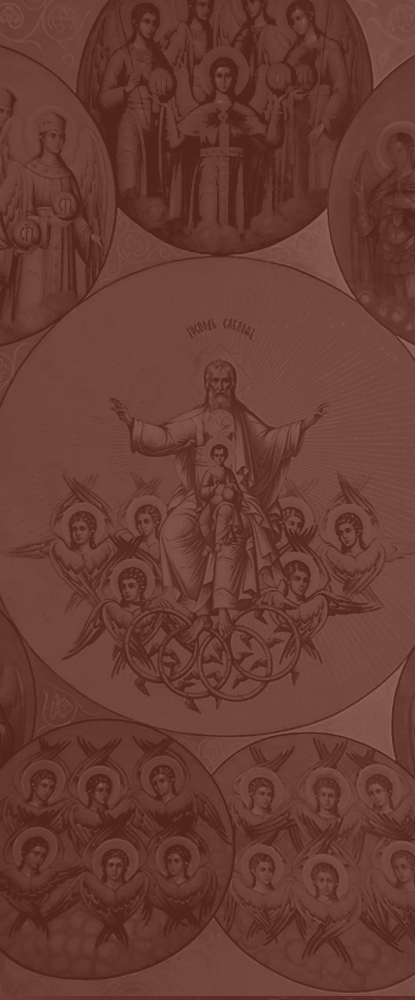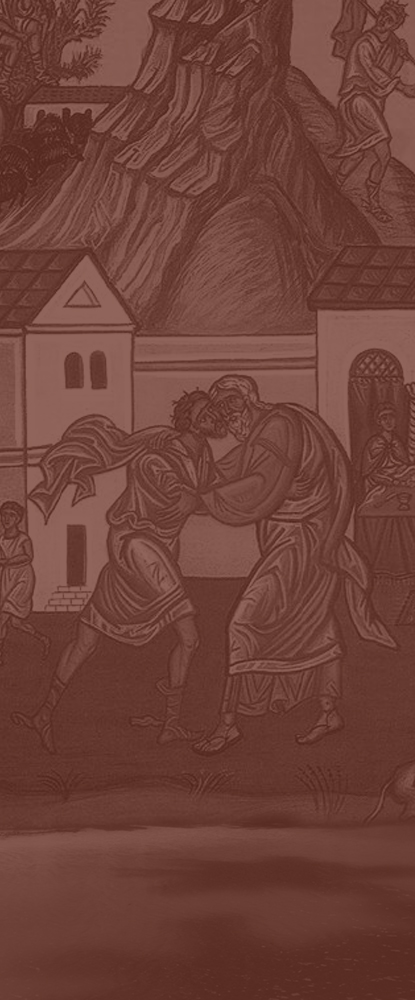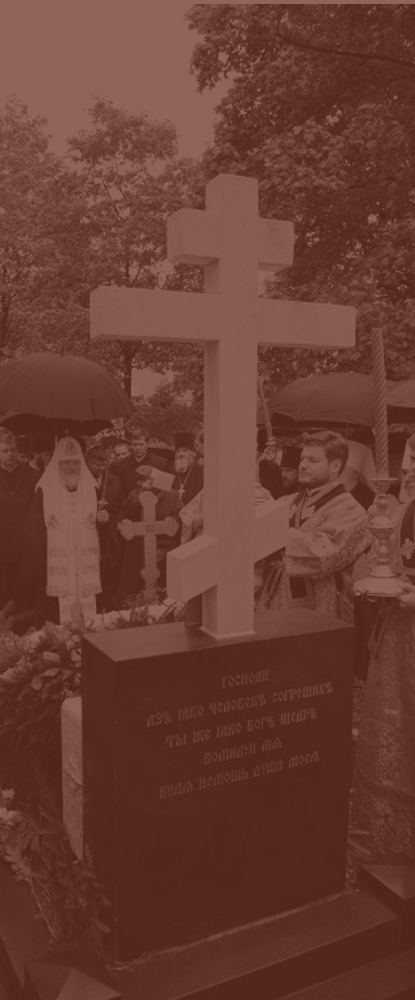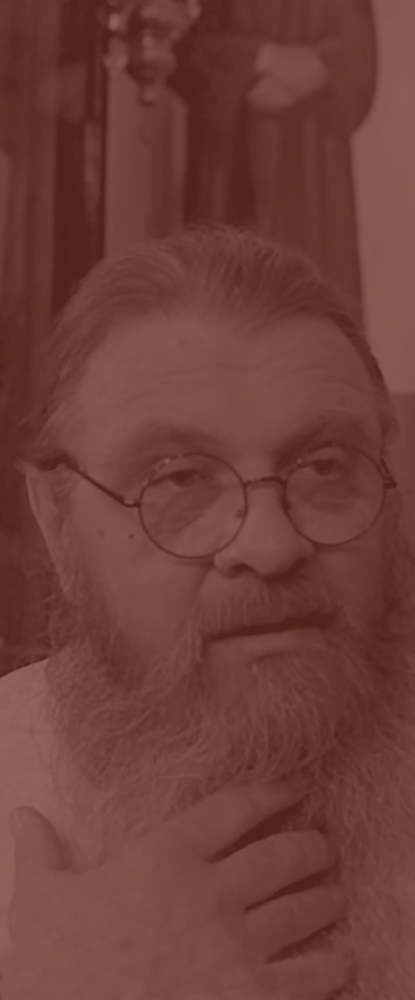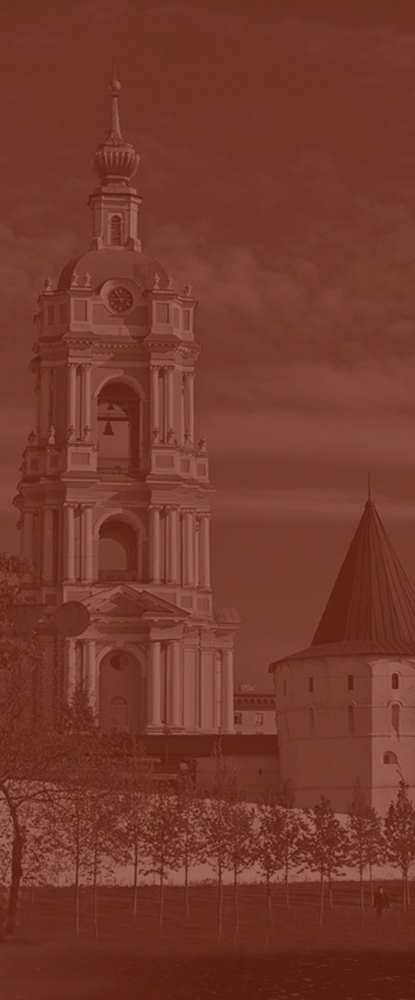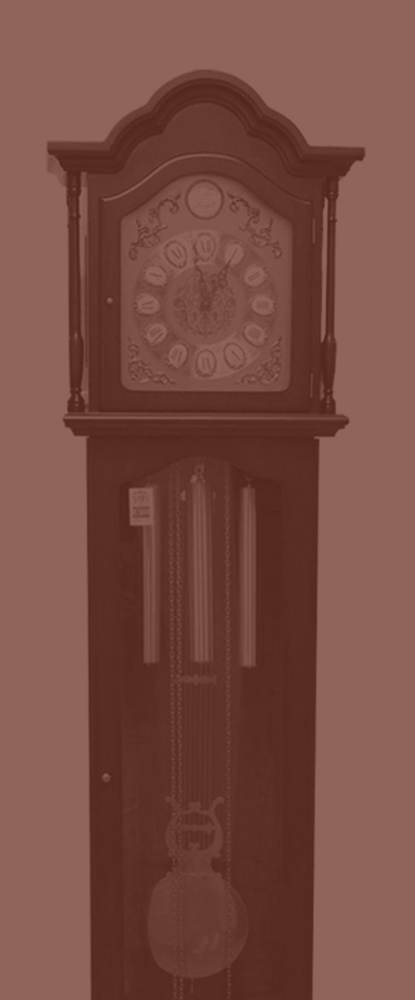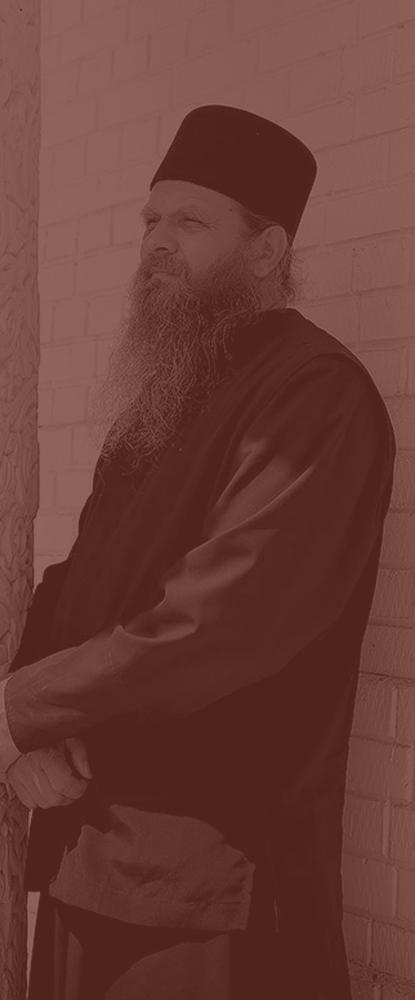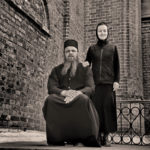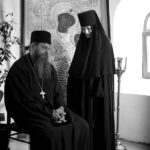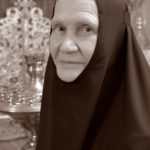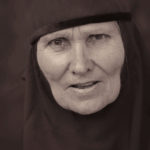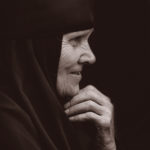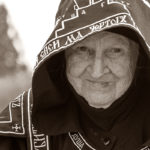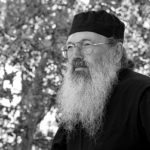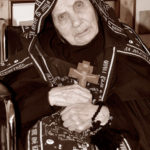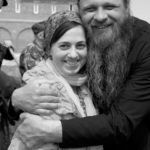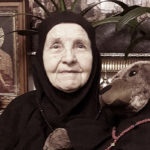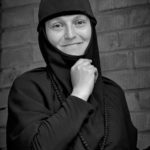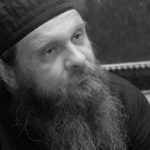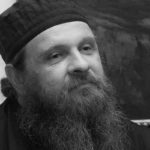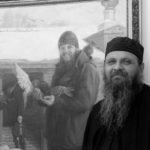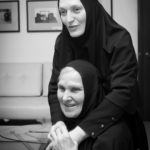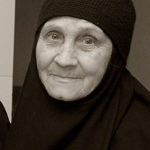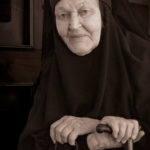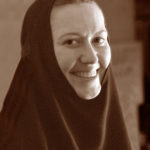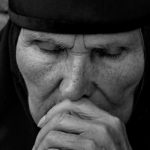The day was overcast, wet, and grey. No. It was completely gloomy, black. This day was unbearable. The car was moving across the town bleakly and monotonously. I wanted it to move even slower, so that the car would completely stop, turn around – just not go there…
I was being taken to the funeral service of a little 4-year-old boy who was kidnapped by a maniac, brutally tortured and cruelly killed by having his small child head smashed with a hammer. For three days, the town was helping the parents, young people, look for their little angel. Nobody even suspected that he was so near, in the cellar of a neighboring house, in horrific torments, in his child terror that freezes one’s blood. We were going there.
I had no right to simply perform the rite and quietly leave.
-You just have to, father, you have to calm down the parents. Tell them words of comfort, support them.
I have to say something, explain what has happened, connect it to God’s providence, with His role, His plan in this horrific tragedy. If His name is Love, how then to explain and connect it all?
I had to…
But I’m just a young priest with a very short experience in life. I was weak, I can do nothing, I don’t want to get out of the car. What do I say to them, so as not to insult, not to offend in such a moment with an empty word, maybe sublime, but empty. Just a little bit wrong – and in this precarious position, when all the nerves are like a stretched string, a thoughtless word can not comfort, it can insult, kill.
They probably couldn’t make out the words then. There were two half persons in front of me: a half mom and a half dad in front of a small coffin.
Half – because with their consciousness, they were only half here. It was like they were drunken, or in a fog. In a critical situation, a protective function of the body was turned on: the consciousness was blunted. Otherwise the heart would burst, it couldn’t bear the problem in its full volume and sharpness.
I had to, I was told I had to comfort them. I could do nothing. I was just praying, I tried to read smoothly, just not to cry myself and not worsen a situation that was already hard.
I read, I sang the finishing prayers, amen. And all I could have said, I said in a few words: “Your little son is now where there is no crying, no insults, where nobody hurts anyone, where children are not killed. He is there now”. And that is it.
That’s when my words ran out. But that is also when I was faced with the questions: “Why?”. Questions that man always asked God in hard, critical, unbearable situations, when he’s no longer asking, but screaming them upward! Screaming with reproach, rebuke, even malice! Why?
For Your name is Love! For You can do anything! Why, answer me.
WHY?
I started asking questions, and HE gradually, very patiently began answering them. Starting with the simplest, crudest, to the most delicate and spiritual ones.
I started to partially understand some of the WHY’s. It makes me a little stronger, a little less contradictory in His side. And sometimes, when my crude nature is able to look into the delicate moments of His providence about man, the heart is able to soften with gratitude, thankfulness to Him! Even in moments of grief and unhappiness it becomes able to say, “Glory to God for all things!”
So, why?
From the simplest.
Why does pain even exist? For what?
If man is created for joy by the good Creator?
That is exactly why.
To be in joy, you need to be in conditions that give that joy, and, on the contrary, breaking those conditions of joy, we get the absence of joy, that is, sorrow.
It’s hard for man to reflect on these things, with his callous mind, after the fall, and sometimes, he just doesn’t want to work on these things with his lazy brain. Let it flow the way it flows. But when God can’t explain it through the mind, can’t get to a person in his crude, beastly state, He is then forced to act through instincts. One of them is called an instinct of self preservation.
Why is tooth pain part of the human physiology? Because if it didn’t exist, our teeth would last a week, maybe a month. We’d chew on bones, stones, we’d crook metal parts and lose our teeth.
But the loving God, when we do not hear His soft voice, begins to scream at us with that pain: “Stop! Stop! You can’t do that, it’s dangerous for you”. Just like any other physiological pain, for example, heart ache. We can run to some goal, run and run, speed up, run out of all resources of our bodies, reaching the critical stage, when the heart can just not bear it and burst, and in this moment, God is screaming to us through that pain in the heart: “Stop, child, you’ll overstrain, sit down, catch your breath, I care for you!”
This is how it is with any physiological pain.
But it’s the same with the soul. Any breach of the moral law will bring you pain. Pain as a scream from Him: “Child, you can’t do that, it’s unnatural, stop!”
The pain of betrayal, jealousy, envy, offense, the pain of anger, as the absence of peace in the heart, and so on.
Sometimes loving parents they watch they child make the first steps in life, not having the experience of pain, stubbornly get into the place where it’s dangerous. So then, mom and dad, not finding other ways to overcome the stubbornness of their little fellow, allow them this little experience of self-will. Let it hit them a bit, so that next time, they’ll be more careful, more attentive, safer. The heart of the parent breaks at hearing their child weep, but they do this in something small, so that they don’t get the full outcome in something big.
It’s all simple and understandable, but still, there is WHY.
Why do the righteous and the innocent suffer?
WHY?
Why does Christ invite us to the Kingdom of heaven and then, right away, offers us the cross?
Why does His joy go through the Cross?
It’s very difficult for us, even more so, it’s unnatural. Lord, we cannot understand You, and without understanding, how can we accept You?
LORD, WHY?
Before my eyes stand the parents of a young girl who committed suicide. In a young age where you can still live and live, and then, all of a sudden… It happens more and more often recently. I’m afraid to judge, so I’m trying to understand, why she and others became able to make this step. But this step is but a moment. What was going on before the person crossed that threshold? It happens sometimes that a person has died a long time ago. He was still walking, blinking, moving in space, eating, drinking, all by inertia, but the soul has already reached the point of no return, and suicide was already a logical point.
Any sickness is accompanied by pain as a signal, as an alarm bell: you’re sick, you need treatment right away, otherwise it’ll be lethal. The sickness of the soul is also accompanied by pain, and often even stronger than physical pain. And then it feels like itd be better if your arm or leg hurt, just not the soul. This pain in its critical stages can become even greater than the fear of death that is natural for man. It can be so unbearable that death can seem like the way out.
The thing is, where does this way our lead to. But the person doesnt think of that, he is in so much pain that he just needs a quick way out.
She was sick and that’s why she died. But what exactly is her sickness, why? I’ll let myself say one thing, that may seem like complete nonsense at the beginning. But that is exactly what I’ll say. Her negative experience of pain that led to a horrific end, happened as a consequence of an absence of positive experience of pain.
I want to explain this crazy phrase.
We were returning from our pilgrimage to the Holy Mount of Athos. The past days made my fellow traveler, not a church person, face many questions that he thought and asked me about.
In particular, the man couldn’t understand the reasons, the goals behind such extreme asceticism, the particular examples of which we had to encounter: “I don’t understand why to take such extreme ascetic practice. They could just pray for their souls, work in joy. Why redouble it, why to be on edge?”
That is why, my dear; try to understand what I’m going to tell you: their goal, their joy, just like ours, are in becoming one with God, there’s heaven in God, there’s delight – the Kingdom of Heaven.
But we can only become one with Him in likeness, when we become like Him in the features of our souls. Things that are like one another become one, and, on the contrary, opposites push away from one another.
We can be taken to heaven, artificially made to live there, but if our inner state will be contrary to God, we won’t find peace there. We’ll be in contradictions, and contradictions will bring discomfort and pain, and heaven will turn into hell. So, we can only unite to God in likeness [to Him].
And if He’s Love?
And what is the main attribute of love, I’d say, its point?
It’s sacrifice.
Sacrifice is the main sign through which we can see the presence of love, its quality. There’s love only where there’s sacrifice. Otherwise everything is an illusion, deceit, something different. A mother sacrifices her sleep, her strength, her habits and her health for her beloved child. She loves him, so she can’t do differently – that is the law of love. She’ll even die for him without thinking, because she simply can’t do differently, she’s a prisoner of love. And this captivity, although it can be hard, sometimes even unbearable, – it’s voluntary, it’s desired.
I’ll say even more: it brings you joy. Like a young man that sincerely loves dreams not only of speaking words of love to his beloved, he yearns for feat for her, for suffering, he longs to die for her. Because his true love compels him to action, and that action is his joy, his point.
But our likeness to God, our state of love should not be an illusion, a philosophical idea. It lives only in action. Love must be expressed, it must be. It must become our BEING with all its attributes and signs, the main one of which is sacrifice.
If you want to be My disciple, take up your cross and follow Me. The Lord does not say: I don’t want to see you without your cross – it’s just that without it, you won’t be like Him. You will be different, you won’t be love, love that can’t be without sacrifice.
The saints understood this, they experienced this very deeply and sensitively, so they took the feat of sacrifice upon themselves artificially, through asceticism. Through it, they stimulated sacrifice within themselves, fostered it, pulled its strings, bothered these sides of the soul, in order to nurture, grow this.
Sacrifice is the food of our likeness to God, its energy.
The saints understood it, desired it, sought it.
But our souls, simple, mortal, should also have this food and energy. Otherwise the static state of our inner world will become like a bog, will rot, die, will lead to the irreparable. So our life is constant dying through sacrifice. The expression of our true being, of living according to God is in dying for Christ.
This is the true life, point.
Now I understand the reason, the point of suffering.
A soul that is capable of suffering, one that is in sacrifice is an alive soul, there’s love in it, there’s God dwelling in it, there’s life happening there, there’s a point.
I began asking questions, and HE gradually, very patiently began answering them. Starting with the simplest and crudest ones, up to the spiritual, the delicate.
In the middle of the 20th century during the horrid world war, when humanity committed horrific things in the relationships between separate persons, between nations, countries, human sacrifices numbered millions: the elderly, women and children perished. In that time, still a young hieromonk, elder Sophronius of Essex wondered. The question that was a protest, the question that was a scream up there, upward:
WHY?
Lord,
WHY?
Why is it unbearable even for me, sinful and insignificant?
Where are You? Why aren’t You there? And then He saw God, crucified on the cross, Who said to father Sophronius: “Was it you Who was crucified for them?”
He saw Christ – not that historical Christ, far-away, two thousand years ago, that was some time crucified for us. He saw the Christ of today on that very cross, in that very sacrifice.
He wasn’t the one who made people kill, make war, act brutally. He just left them to their own will. Left to get through to the hearts of people. To scream at them. My poor, unhappy people, please finally understand how sick you are. You absolutely cannot live by yourselves: the way that seems right, the way that you want. You will surely do everything wrong, you’ll start fighting, feud, kill. That all is in you. In everyone, in everyone… in each one of us.
Together with the mother of a tortured baby there, upward, with protest, also screamed the mother of the maniac: “Lord, why? He was a wonderful child, a kind-hearted teenager, why did he become like this and commit what he has committed?”
Why?
Why?
Why?
Because that is present in all of us after the fall. We are in an abnormal state, we’re all capable of sin, of murder. God is holding back our tumult, and in our well being we start thinking that everything is well. Our instinct of self preservation is faded, it seems like everything is going by itself, going well.
And then, to shake within us the sharpness of seeing the problem, He does not punish, He just steps away, and we begin punishing ourselves, going to the terrible, and in this terror we scream:
WHY?
Why have You abandoned us?
Because victory still has not been attained, the battleground is our hearts, and God cannot, without our voluntary participation, attain victory. He is bounded by our freedom. He can only scream to us, implore us, offer us help.
God is screaming to us that the situation is serious, so critical that He doesn’t even leave the cross, and He isn’t on the cross for Himself, but for our problems. And just like He was receiving spitting from men on Golgotha two thousand years ago, He still is right now.
Spits and offenses, not understanding of the fact that people are themselves to blame for all of their problems. And He cannot fix anything without our participation, without our own work.
Coming back there, in my memory, back to that funeral of the baby, I involuntarily place myself in his parents’ shoes, in his own shoes, in the shoes of the maniac, and there’s room for me everywhere, for I am human. Human with a small h, yet, because I carry the flaws of the fallen nature. There’s sickness very terrifying, very horrible. And if I see it sharply, very sensitively, and will receive treatment, with God’s help, meaning that I will follow all of His commands and suggestions, then I will be able to overcome it. And on the contrary, if I just let it be, the sickness will progress and develop, and the terrible will happen: from a creature made in Gods likeness, I’ll become a beast, a freak.
The process of healing means receiving bitter treatments, procedures, the following of a regimen. All of this restrains my freedom, my “I want”. But it also gives results. I begin feeling well, my mood goes up, I begin experiencing the feeling of joy, and along with me, my loved ones rejoice and so does my Doctor – Lord God.
To Him be the glory forever. Amen.
